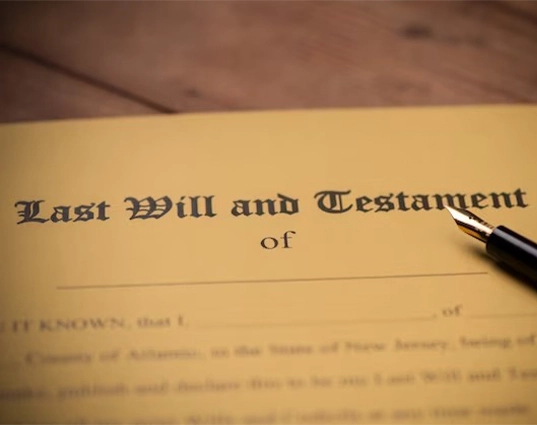At Estofa Law our Wills And Estates Lawyer Niagara Falls provides unparalleled expertise along with compassionate counsel to assist you in navigating the difficulties of estate preparation and maintenance. Whether you’re managing a loved one’s estate, creating trusts, or writing a will, our staff is dedicated to offering custom solutions that take into account your particular requirements and goals. Since such problems can be extremely personal as well as overwhelming, our Wills And Estates Lawyer Toronto put considerable importance on accurate communication, thorough comprehension, and careful attention to detail. Estofa Law Real Estate Lawyer Niagara Falls is a trustworthy collaborator in guarding your legacy and offering you and your family peace of mind because of our solid track record of accomplishment and commitment to serving our community. To discover the benefits of a tailored, personalized approach to estate law, get in contact with our Wills and Estate Lawyers right away!
The will is an official document that describes how a person’s property and issues are to be handled upon their death. It specifies down who will get the property, how taxes and debts are to be paid, and, in situations where supervision is necessary, it specifies guardians for minor children. By writing a will, people are able to ensure that their wishes are set out clearly and made legally enforceable. It helps to avoid arguments among heirs and gives precise instructions for how the wealth will be divided. The assurance that their financial and personal matters will be handled according to their preferences is a comfort that comes with using this vital estate planning tool.

The essential elements of a will might involve selecting beneficiaries, dividing assets, and selecting an executor to look after the affairs of your estate. It could further include any specific bequests you would like to make, as well as guardianship for minor children. Having a concise will assures that your intentions are understood and respected by the law. Wills contain the following information:
A will does not affect your wealth or property while you are still living; instead, it only becomes valid upon your death. When you die, your will goes through the probate process, also known as a legal procedure that verifies its validity and makes sure that its terms are implemented. Even until that moment, you continue to have total control over your property and are entitled to alter your will as necessary. This process gives your loved ones guidance and clarity during a difficult moment and guarantees that your belongings are handed over according to your wishes.
Wills have specific restrictions even though they are necessary for determining where you want your possessions to be divided. A will won’t be approved or executed before going through the probate process. Additionally, assets like savings accounts and life assurance policies which belong to different names and have designated beneficiaries cannot be managed by them. Nor, in the absence of court involvement, does a will immediately enforce custody arrangements for minor children. Additionally, it does not address all financial issues, such as unpaid taxes and debts, which need to be handled independently. It is necessary to understand these constraints to develop an estate plan that fully reflects your financial status and personal interests.
A will usually must meet several important legal conditions to be considered legitimate. To ensure impartiality, it must be in writing, confirmed by the testator of the will (the person creating the will), and verified by non-beneficiaries. The testator’s obvious and voluntary aims must be expressed in the will, and they must have the capacity to comprehend the nature of it and its effects mentally. The will ought to be governed by state-specific law, which might require additional obligations or specific language. Making sure these requirements are satisfied guarantees the testator’s wishes are respected and helps prevent disputes.
Our Wills And Estates Lawyer Hamilton provide expert guidance to ensure that your assets are managed correctly and that your will is made with precision. We manage the charge of the complicated financial planning and administration, offering you the assurance that your wishes will be efficiently and courteously followed.
Estofa Law is a real estate law firm dedicated to serving clients in Burlington, Oakville, Milton, Hamilton, and Toronto.
The material found on our website is intended purely for informational purposes. It is not to be considered as legal advice or a replacement for seeking guidance from a qualified professional. A solicitor-client relationship is not established until formal retention.
Copyright © 2025 | Estofa Law Professional Corporation | All Rights Reserved